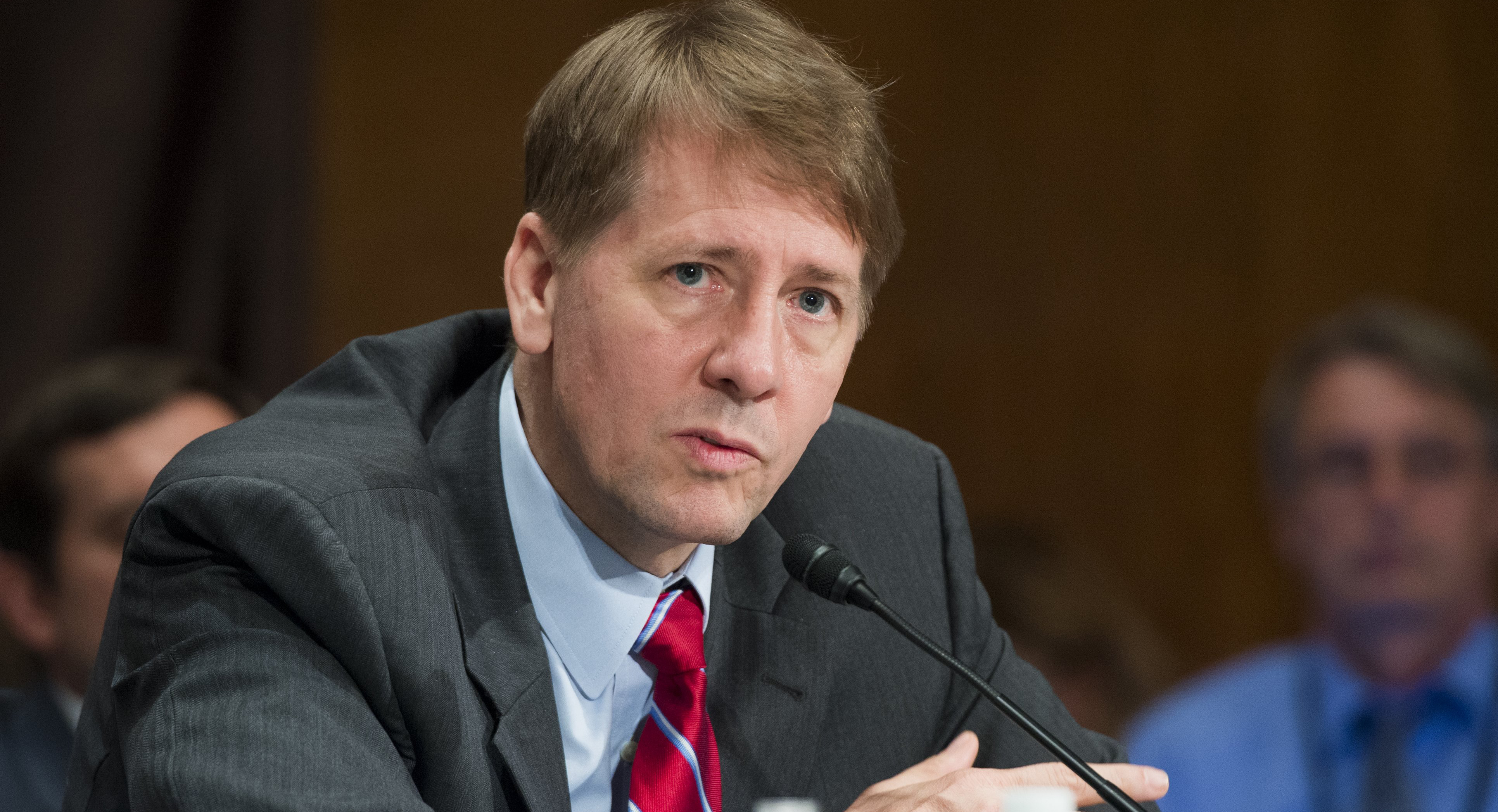
Scandal-plagued Washington D.C. Bureaucrat Richard Cordray finds himself facing even more questions over his exit from the Consumer Financial Protection Bureau (CFPB). A new report notes that he allegedly plotted to subvert the President’s executive power and appoint his own successor when he left the CFPB last November, throwing the bureau into chaos.
One week after he announced his intent to resign as the CFPB’s Director, Cordray reportedly circulated articles to his leadership team from two liberal outlets asserting that the president could not appoint an acting director to the CFPB. When he did resign, Cordray attempted to appoint his chief of staff, Leandra English, in a direct challenge to the President’s appointed acting director, Mick Mulvaney. Cordray’s attempt failed when a federal judge struck down English’s effort to block Mulvaney’s appointment.
With some labelling Cordray’s actions as a “coup attempt” and English already facing an accusation for attempting to “burrow” into a career position at the CFPB, these newest revelations further show how little Cordray can be trusted to lead.
The Washington Times reports:
“Newly released emails reveal how former Consumer Financial Protection Bureau chief Richard Cordray scrambled to justify appointing his own successor at the agency to thwart President Trump.
A week after announcing his plans to step down last November, Mr. Cordray circulated articles from two liberal outlets asserting that the president couldn’t name a new acting director of the bureau.
‘Succession Issues—Here is Adam Levitin’s post and it bears serious scrutiny today for discussion,’ stated the subject line of an email from ‘RC’ — believed to be Mr. Cordray — on Nov. 22. ‘Mary, need you to have people consider it further please.’
‘Mary’ is CFPB general counsel Mary McLeod. Despite Mr. Cordray’s pressure, she agreed with Mr. Trump’s decision to name Office of Management and Budget Director Mick Mulvaney as acting head of CFPB.
The articles cited in the email had been posted on the Intercept and on Credit Slips, a banking blog that has featured articles by Sen. Elizabeth Warren, Massachusetts Democrat who helped to create the CFPB.
Cause of Action Institute, a nonprofit watchdog group, obtained the emails through a Freedom of Information Act request.
Mr. Cordray tapped his chief of staff, Leandra English, to become deputy director, putting her in line — in Mr. Cordray’s view — to take over as acting director when he quit. Cause of Action called it a ‘last-ditch coup’ attempt.
Ms. English sued to block Mr. Mulvaney from taking over as acting director, but a federal judge has sided with the White House. In a separate case, a federal appeals court ruled this week that the CFPB’s power structure of a single director is constitutional — a decision that is expected to be appealed to the Supreme Court.”





See the latest videos from RGA
Watch our videosHappy Independence Day!
Always proud to be an American!🇺🇸 https://x.com/GOPGovs/status/1941089615127163218/video/1
I want to congratulate @POTUS, Senators @berniemoreno and @SenJonHusted, and Ohio’s Congressional delegation for today e…
Follow RGA on Twitter
Follow RGA on Facebook